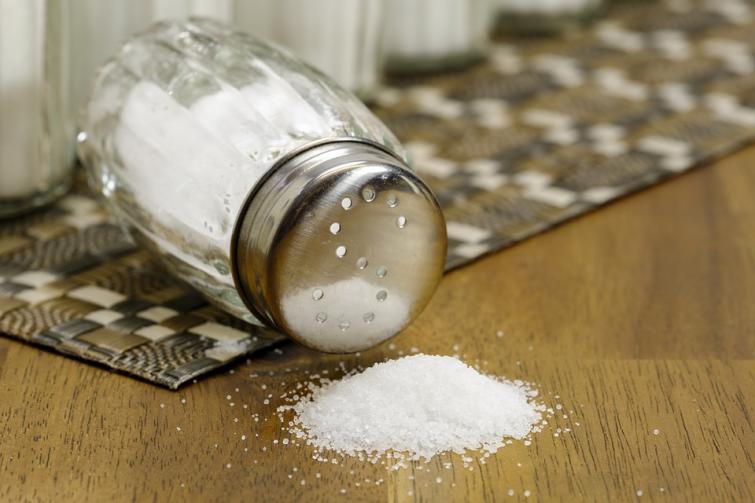
Higher sodium intake associated with increased lightheadedness in the context of the DASH-Sodium Trial
Boston, Feb 11 (IBNS): Lightheadedness with standing, otherwise known as postural lightheadedness, results from a gravitational drop in blood pressure and is common among adults.
While mild in many adults, it has been cited as an important contributing factor in some harmful clinical events, such as falls.
As a result, greater sodium intake is widely viewed as an intervention for preventing lightheadedness when moving from seated to standing positions.
However, contrary to this recommendation, researchers at Beth Israel Deaconess Medical Center (BIDMC) found that higher sodium intake, when studied in the context of the DASH-Sodium trial (Dietary Approaches to Stop Hypertension), actually increases lightheadedness.
These findings challenge traditional recommendations to increase sodium intake to prevent lightheadedness. The study appeared today in the Journal of Clinical Hypertension.
“Our study has real clinical and research implications,” said Stephen Juraschek, MD, PhD, the study’s corresponding author and a primary care physician at BIDMC. “Our results serve to caution health practitioners against recommending increased sodium intake as a universal treatment for lightheadedness. Additionally, our results demonstrate the need for additional research to understand the role of sodium, and more broadly of diet, on lightheadedness."
The researchers used data from the completed DASH-Sodium trial, a randomized crossover study that looked at the effects of three different sodium levels (1500, 2300, and 3300 mg/d) on blood pressure. All participants ate each of the three sodium levels in random order for four weeks. Half of the participants ate the sodium levels in the context of a typical American diet (a control diet) while the other half ate the sodium levels consistent with DASH diet guidelines.
The original trial showed that by lowering sodium, blood pressure was also lowered – and was the basis for current guidelines for sodium consumption.
The study also asked people to rate their experience of lightheadedness when they stood up, although these data were never reported.
As such, in this secondary analysis of the DASH-Sodium trial, the researchers examined the impact of increased sodium intake on postural lightheadedness.
The study’s findings suggest that concerns about reducing sodium causing lightheadedness may not be scientifically based. It also further questions recommendations to use sodium to treat lightheadedness, an intervention that could have negative effects on cardiovascular health.
“Health practitioners initiating sodium interventions for orthostatic symptoms now have some evidence that sodium might actually worsen symptoms,” said Juraschek. “Clinicians should check on symptoms after initiation and even question the utility of this approach. More importantly, research is needed to understand the effects of sodium on physical function, particularly in older adults.”
The study also examined subgroups of the population, including older adults (age 60 and above) and adults with obesity. The effects of sodium on lightheadedness differed between these groups. In particular, higher sodium increased lightheadedness in younger people, but modestly reduced lightheadedness in older adults.
“Sodium is widespread in our foods, yet its effects are poorly understood,” said Juraschek. “This study illustrates the importance of more trials involving the foods we eat so that we can better understand what constitutes a healthy diet.”
In addition to Juraschek, coauthors include Allison W. Peng, BS, Lawrence J. Appel, MD, MPH, Noel T. Mueller, PHD, Olive Tang, AB, and Edgar R. Miller III, MD, PhD – all of The Johns Hopkins University School of Medicine, The Johns Hopkins Bloomberg School of Public Health, and the Welch Center for Prevention, Epidemiology and Clinical Research, Baltimore, Maryland.
Support Our Journalism
We cannot do without you.. your contribution supports unbiased journalism
IBNS is not driven by any ism- not wokeism, not racism, not skewed secularism, not hyper right-wing or left liberal ideals, nor by any hardline religious beliefs or hyper nationalism. We want to serve you good old objective news, as they are. We do not judge or preach. We let people decide for themselves. We only try to present factual and well-sourced news.







